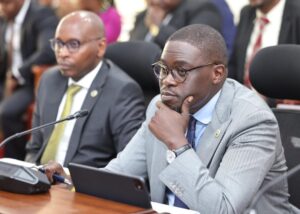Trust But Verify: Dr. Ekrah Ndung’u on Navigating Betrayal

In a thought-provoking address, Dr. Ekrah Ndung’u, Chairperson of the Kenya Association of Private Colleges (KENAPCO), shared her insights on the pervasive nature of betrayal, drawing parallels from biblical history to contemporary life.
Reflecting on the infamous betrayal of Jesus by Judas Iscariot, Dr. Ndung’u highlighted how betrayal often stems from those closest to us—friends, family, and colleagues. She emphasized that, like Peter’s denial of Jesus, such betrayals can come from those we trust the most. “Betrayal is common for people with no conscience. It is the only truth that sticks,” she stated.
Dr. Ndung’u urged individuals to cultivate resilience in the face of betrayal, suggesting that the impact of such experiences is a matter of personal choice. She recalled lessons from her father, who advised maintaining a balance in trust: “Trust people 70%, keep 30% trust to yourself. This allows for a quicker recovery if betrayal occurs.”
She also referenced his time working with the late Education Cabinet Secretary, Prof. George Magoha, who imparted a vital lesson: “If you have to trust people, VERIFY.” This mantra, “Trust but Verify,” serves as a guiding principle for navigating relationships, both personal and professional.
Dr. Ndung’u concluded with a call to embrace grace in the face of betrayal, urging others to follow Jesus’ example and rise above the pain caused by those who turn against us. In a world where betrayal can feel inevitable, his message resonates as a reminder to approach trust thoughtfully and protect one’s heart.




